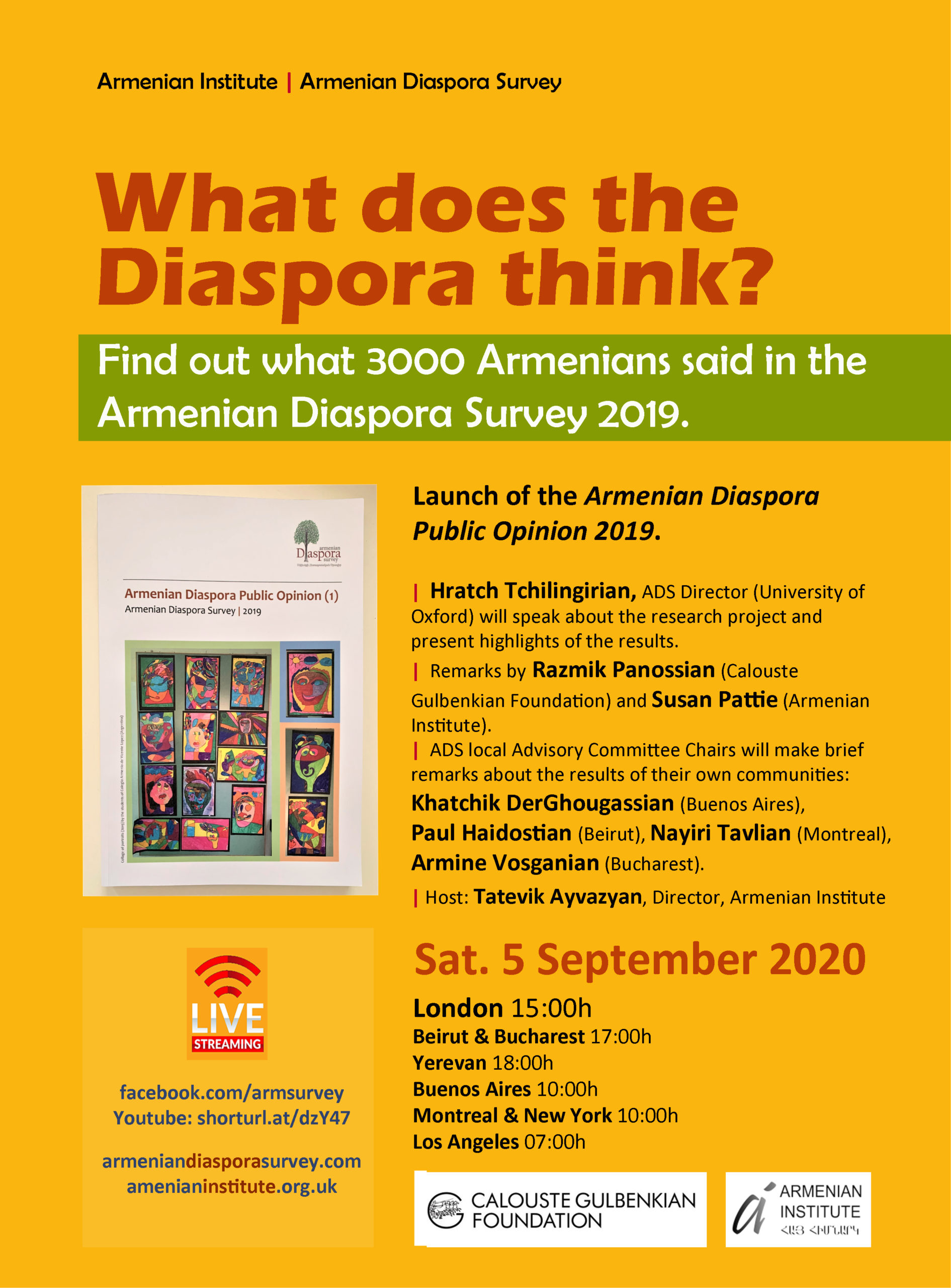LONDON—The results of major research on public opinion in Diaspora communities will be formally launched at an online event on September 5.
The Armenian Diaspora Survey (ADS)—the first of a three-year study project—was held in four communities in 2019: Argentina, Lebanon, Canada (Montreal) and Romania. The fieldwork took place between September and December 2019. Three-thousand Armenians participated in the study.
“The Armenian Diaspora Survey is an attempt to study the opinions of Armenians living in various communities around the world and aims to explore the ‘ingredients’ of being Armenian in the 21st century,” said ADS director Dr. Hratch Tchilingirian of the University of Oxford.
The research provides a snapshot of the contemporary Diaspora by studying public opinions on identity, language and culture, community engagement, and relations with Armenia.
ADS is funded by the Calouste Gulbenkian Foundation and is carried out by a team of experts under the auspices of the Armenian Institute in London.
“We are pleased that this multi-country systematic survey of the Diaspora has been done with extensive fieldwork and large participation,” said Dr. Razmik Panossian, Director of the Calouste Gulbenkian Foundation’s Armenian Communities Department. “I thank all the people who were involved with and supported this research project,” he added.
The 175-page full results of the 2019 study will be available to download for free from the ADS website.
The launch will be live streamed on Saturday, September 5, 2020 at 15:00h London time (Beirut and Bucharest 21:00h; Yerevan 18:00h; Buenos Aires 10:00h; Montreal and New York 10:00h; Los Angeles 07:00h) on Facebook and YouTube.




Any poll, survey or census among Armenians is welcome. But how can we assure that the pollsters really do poll honorably, as they say they do? How do we know that they do not cherry pick who they reach out to in order to arrive at a desirable outcome? How do we know that the questions selected are not skewed to serve the interests of those the offering funding? These questions came to mind after I read the survey responses reported by the survey takers and drew these conclusions.
How knowledgeable about Armenian issues and active in Armenian communities were the Armenians surveyed?